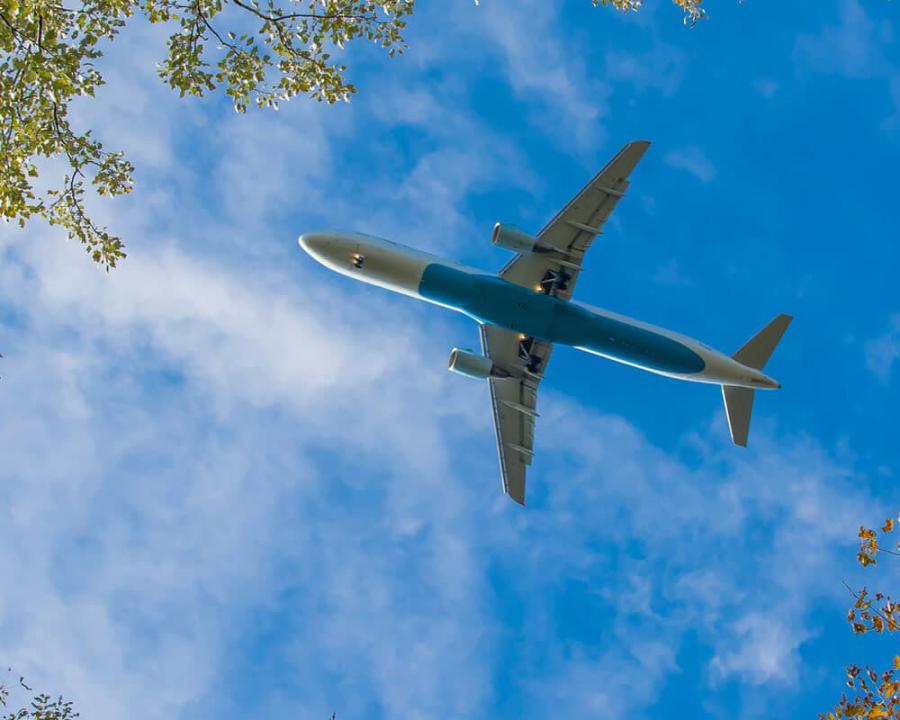
Low-Carbon Fuel Standard + NWABF = WIN in Washington State
SCOTTSDALE, AZ, UNITED STATES, April 19, 2021 /EINPresswire.com/ -- Great news was just announced for the clean-air and biofuels industry in the state of Washington. After years of discussion and earlier attempts for passage in the State House, HB Bill 1091, (“Bill”), was finally passed by the Washington State Senate in early April. The Bill had been passed by the state’s House of Representatives in March.
The goal of HB 1091 is to put into law a low-carbon fuel standard (LCFS) in the state of Washington, which will improve the air quality by reducing carbon intensity from traditional transportation fuels. The Bill also promises to offer more low-carbon and renewable alternatives, like the sustainable aviation fuel from woody biomass that will be produced by Northwest Advanced Bio-Fuels LLC.
The HB Bill 1091 places limits on the amount of carbon in transportation fuels by 10% by 2028, and 20% by 2035. The Bill also allows producers to purchase carbon credits.
“In the carbon lifecycle, we’re eliminating 80% or more of the emission relative to the petroleum fuel,” said Nausher Khan, NWABF Director of Project Development. “The LCFS provides incentives 125% emission reduction.”
The Bill will now go into the state’s Rules Committee, where they will iron out the final language to ensure correct representation for all parties for the final Bill, which is expected to become law next year.
Features & Benefits
Here are some of the general benefits of the clean fuel standard Bill:
* creating an incentive for fuel producers to transition to cleaner fuels. Those who don’t will be left behind
* creating good-paying long-term jobs in rural communities and forest areas that benefit the ports, local towns and communities
* helping to create a new clean energy economy
* addressing the important focus of climate change
* improving public health and lowering healthcare costs resulting from pollution reduction
The clean fuel standard Bill will help the state of Washington to reduce its greenhouse gas emissions and help Washington to become a climate change leader, which is on the States agenda. In addition, proponents of the Bill noted that it would help the state to build out charging stations for electric cars, support the renewable industry in general, and boost the regional economic development and transportation.
The Port of Seattle also favored the passage of the Bill, noting in a January letter to the House Speaker that “Enacting a Clean Fuels Program in Washington is key to fostering the development of new technologies that are not only good for the climate but also for the air quality in our communities. It is also good for our economy, as businesses are increasingly seeking cost-effective ways to reduce their carbon footprint.”
NWABF Project Manager Chris Whitworth has worked with the Port of Seattle and other agencies in Washington to create more interest and possibly even companies collaborating on SAF projects. NWABF is also working closely with The State of Washington Energy Facility Site Evaluation Council, (EFSEC or Council), which provides a "one-stop" siting process for major energy facilities permitting in the State of Washington. This one major issue has cost the state many projects in the past due to inabilities of getting project permitted on a timely basis.
Bill History
This was Governor Jay Inslee’s 4th attempt to pass the Bill, which moves forward the state’s clean fuel standards. The Bill had the support of Amazon and other influential groups in the state. Plus, many residents support clean air in the state. One observer wrote: “The passage of this Bill is a commitment to continue the fight to preserve the cleanliness of our air and landscapes for all of Washington’s inhabitants.”
The Bill was patterned after the clean air Bills already in California (from 2010), and Oregon (from 2015) that require reductions in the GHG emissions associated with transportation fuels. One of the state’s Bill sponsors called it a great opportunity to “protect the climate, improve our air quality, and create jobs in the biofuels industry.” We couldn’t agree more.
The Bill’s passage is important to Northwest Advanced Bio-Fuels LLC, as it will benefit our planned SAF fuels facility operation in Washington once it’s underway as well as future Projects now in discussion. Once finalized into Washington state law, we expect that having a low carbon fuel standard will reduce air contaminants from traditional fuels on a broad scale.
More importantly, the recent Bill’s passage will eventually open up investment opportunities in the state of Washington; it also will create good paying and long-term jobs in the rural communities and forest areas where biofuel facilities like ours will be built. And that’s a great bonus for us all.
For more information, visit our website at https://nwabiofuels.com/.
David P. Smoot
Northwest Advanced Bio-Fuels, LLC
+1 602-753-8386
email us here
Visit us on social media:
Facebook
Twitter
LinkedIn
EIN Presswire does not exercise editorial control over third-party content provided, uploaded, published, or distributed by users of EIN Presswire. We are a distributor, not a publisher, of 3rd party content. Such content may contain the views, opinions, statements, offers, and other material of the respective users, suppliers, participants, or authors.


